Space
Sign up for our newsletter
We summarize the week's scientific breakthroughs every Thursday.
-
 Earth
EarthFossil mimics may be more common in ancient rocks than actual fossils
Evidence of early life may be harder to preserve than pseudofossils — structures that form abiotically but resemble living remnants.
-
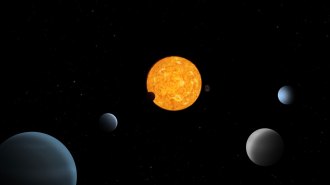 Astronomy
AstronomyTwo exoplanet families redefine what planetary systems can look like
The TRAPPIST-1 and TOI-178 systems, both home to multiple bunched-up planets, have densities and orbits that defy expectations.
-
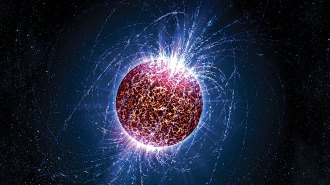 Cosmology
CosmologyEinstein’s theory of general relativity unveiled a dynamic and bizarre cosmos
Albert Einstein’s theory of general relativity foretold space-bending beasts, cosmic shock waves and mysterious forces.
-
 Physics
PhysicsThe Milky Way’s newfound high-energy glow hints at the secrets of cosmic rays
Gamma rays with energies approaching a quadrillion electron volts emanate from the disk of the Milky Way.
-
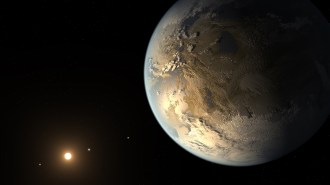 Space
SpaceCrushed space rocks hint at exoplanets’ early atmospheric makeup
Experiments that heat crushed-up meteorites are helping astronomers understand what to look for in exoplanet atmospheres.
-
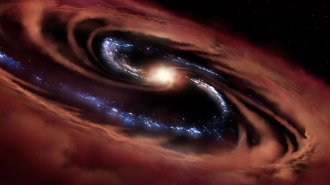 Astronomy
AstronomyAstronomers spotted a rare galaxy shutting down star formation
A distant galaxy harbors an active black hole and active star formation at the same time – an unusual coincidence.
-
 Space
SpaceThe first magnetar flare detected from another galaxy was tracked to its home
An outburst from the super magnetic remains of a star suggests similar eruptions are behind some of the most powerful explosions in the universe.
-
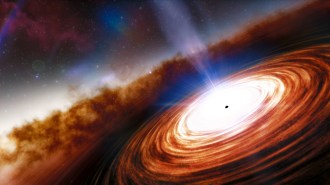 Space
SpaceThe most ancient supermassive black hole is bafflingly big
The farthest known quasar challenges ideas about how the first supermassive black holes in the universe formed.
-
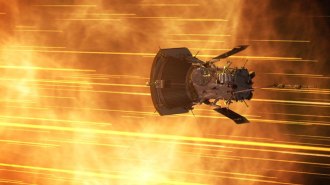 Space
SpaceThe Parker Solar Probe will have company on its next pass by the sun
The probe is about to make another close pass of the sun. This time, Solar Orbiter, BepiColombo and others will be watching too.
-
 Space
SpaceHere are the highlights from a busy year in space launches
Satellites, Mars rovers and astronauts launched into space in 2020.
-
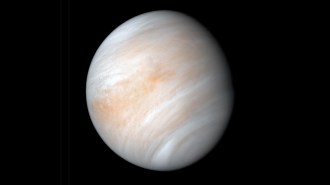 Science & Society
Science & SocietyThese science claims from 2020 could be big news if confirmed
Scientific findings reported this year that still need more proof include potential signs of life on Venus and Earth’s oldest parasites.
-
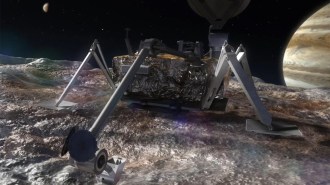 Space
SpaceHow future spacecraft might handle tricky landings on Venus or Europa
Scientists are getting inventive with ways to touch down on these worlds, where landers will face obstacles not seen elsewhere in the solar system.